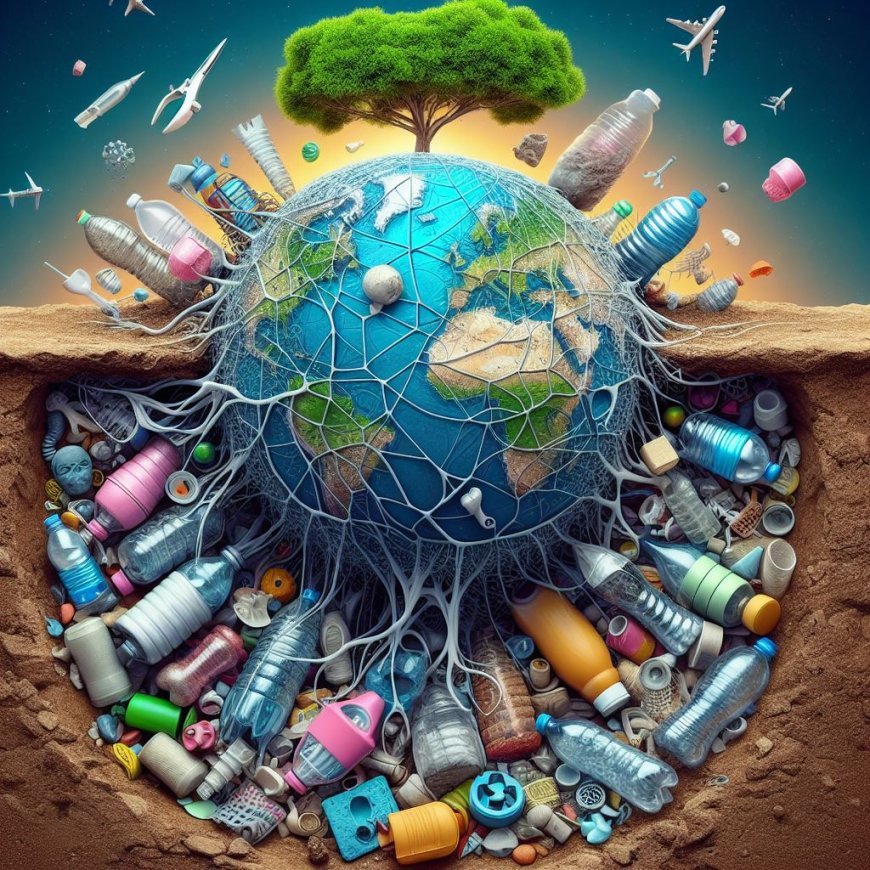Biodegradable Plastic will reshape sustainability
Biodegradable Plastic will reshape sustainability, What is biodegradable plastic. How will it impact automotive industry? Biodegradable Plastic market is starting to boom.

Plastic pollution is a major environmental issue because most plastics do not biodegrade and instead break down into microplastics, which are 5 millimeters or smaller in size. Microplastics are estimated to persist in the environment for centuries, or even longer. An estimated 8 million metric tons of plastic enter the ocean each year according to the US Department of Environmental Studies.
Market for Biodegradable Plastic
According to our research, the Market for biodegradable plastic is currently growing at a CAGR of approximately 13% and is poised to grow with higher CAGR in the coming years. The market is anticipated to reach up to $4.5 billion by the year 2027. This is due to the high demand from the food packaging industry in developed countries. The major challenge in its mass commercialization is the higher cost.
However, there is huge potential for its growth in developing economies where the consumption of plastic is extreme.
What is Biodegradable Plastic?
Biodegradable plastics are materials that can break down naturally under the influence of environmental factors like heat, moisture, and microorganisms, therefore, biodegradable plastics are considered a more sustainable alternative to conventional plastic. There is been continuous research in this space to find better alternatives that can bio-degrade faster while being cost-effective.
Researchers at the University of Washington have developed new bioplastics that degrade in the same time as a banana peel. These bioplastics are made entirely from powdered blue-green cyanobacteria cells, known as spirulina. This new bioplastics have mechanical properties that are comparable to single-use, petroleum-derived plastics.
Startups active in the development of biodegradable plastic
-
Bamboo Haat: Founded by Sumit Verma, Bamboo Haat focuses on creating eco-friendly office and personal stationery products. Their range includes bamboo-based toothbrushes, razors, earbuds, pens, pencils, and combs.
-
BioReform: Mohammed Azhar Mohiuddin leads BioReform, a manufacturer of biodegradable and compostable bags. These bags completely biodegrade in less than 180 days. They specialize in customized biodegradable bags based on customer requirements.
-
GreenPlast: Co-founded by Kavitha Rajan, GreenPlast provides an excellent replacement for plastic carry bags in the retail industry. They also manufacture water-soluble pellets, films, and bags using non-plastic ingredients.
-
Jutaji: Founded by Soumo Ghosh, Jutaji is making a positive change in the footwear industry. They use natural, biodegradable materials like organic cotton, hemp, and natural rubber to create durable and comfortable footwear through their online store.
-
ekPehel Smart Solutions: Founded by Aakriti Jain, ekPehel offers solutions to the spitting problem in India. Their specialized products include the ekpehel spit cup, ecospit system, and bio spittoon.
-
Evlogia Eco Care: Co-founded by Manigandan Kumarappan, Evlogia produces patented Leafy straws. These straws are made sustainably and responsibly. They also offer other eco-friendly products like scrubbers, organic cutlery, and organic disposal slippers.
Biodegradable Plastic in the Automotive Industry
| OEM | Use Case | Vehicle Model |
|---|---|---|
| Ford | Integrating biodegradable plastics into interior components (dashboard panels, door trims, seat covers) | Ford EcoSport |
| General Motors (GM) | Exploring biodegradable plastics for exterior parts (bumpers, grilles) | Chevrolet Bolt EV |
| Hyundai and Kia | Adopting biodegradable plastics for under-the-hood components (engine covers, fluid reservoirs) | Hyundai Kona Electric, Kia Niro EV |
| Mercedes-Benz | Incorporating biodegradable plastics in interior and exterior components (wheel arch liners, steering wheel covers) | Mercedes-Benz EQS |
| Nissan and Renault | Using biodegradable materials for electrical components (wiring insulation, connectors) | Nissan Leaf, Renault ZOE |
| Stellantis | Innovating with sustainable materials for packaging and shipping | Jeep Wrangler 4xe |
| Toyota | Focusing on biodegradable materials for tire components (tire treads, inner tubes) | Toyota Prius (and other Toyota hybrid models) |
| Volkswagen | Incorporating biodegradable plastics in interior and exterior components (steering wheel covers, grilles) | Volkswagen ID.4 |
Future of biodegradable plastic
The future of biodegradable plastics holds promise as we move away from fossil fuels in a more sustainable future. Researchers from the Oxford Martin Programme on the Future of Plastics propose ambitious targets to achieve a net-zero plastic economy. These targets include reducing future plastics demand, changing manufacturing processes to use renewable raw materials, significantly increasing recycling rates, and minimizing environmental impacts. A careful assessment of the life cycle and land use impact is crucial to ensure that next generation gets genuine environmental benefits from biodegradable plastic.
What's Your Reaction?























